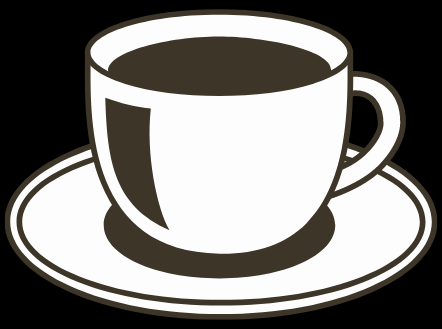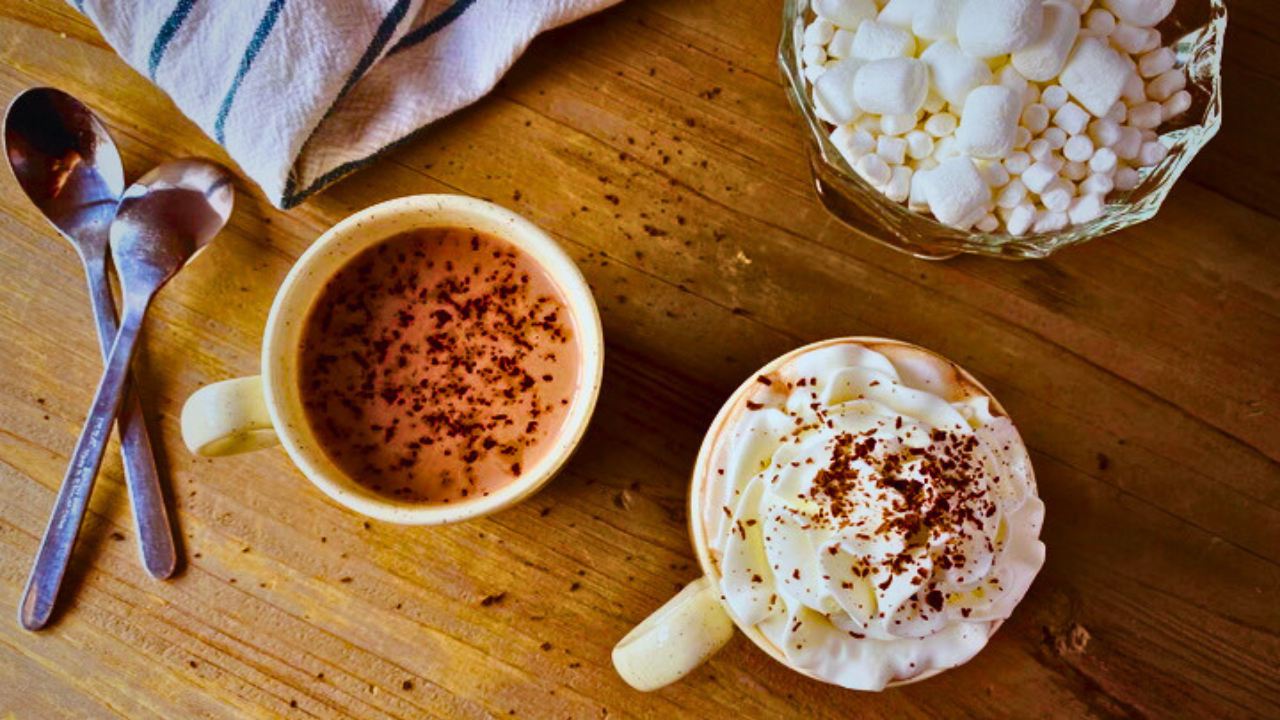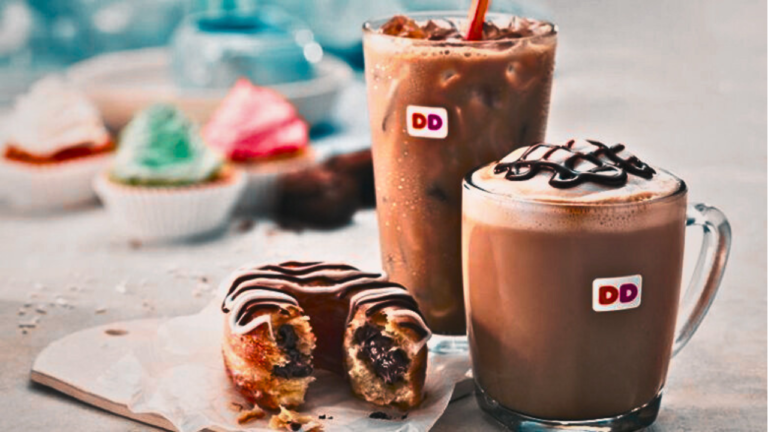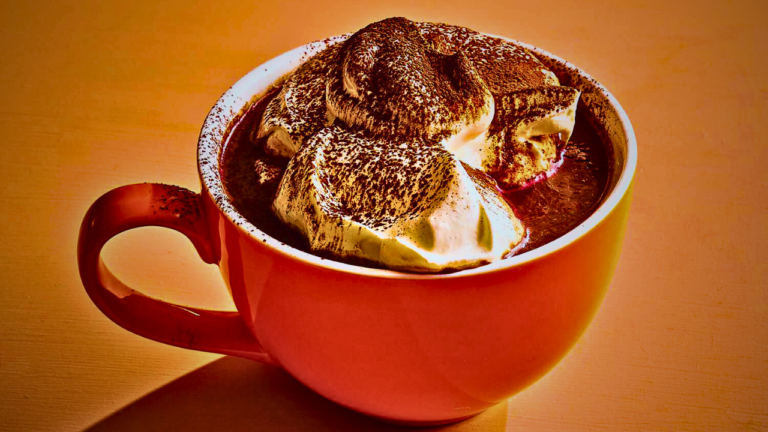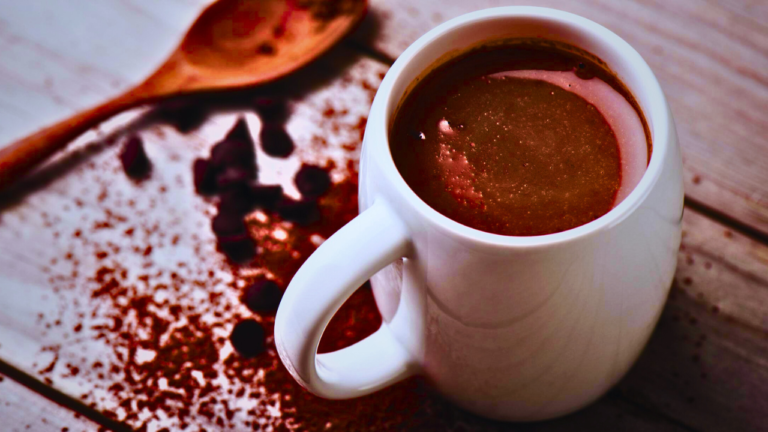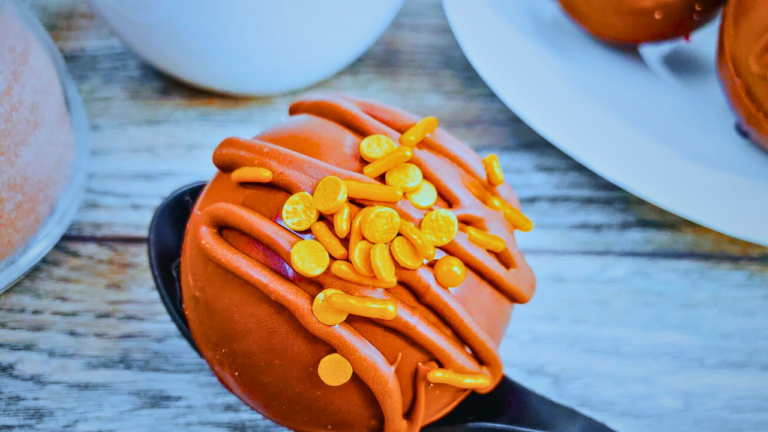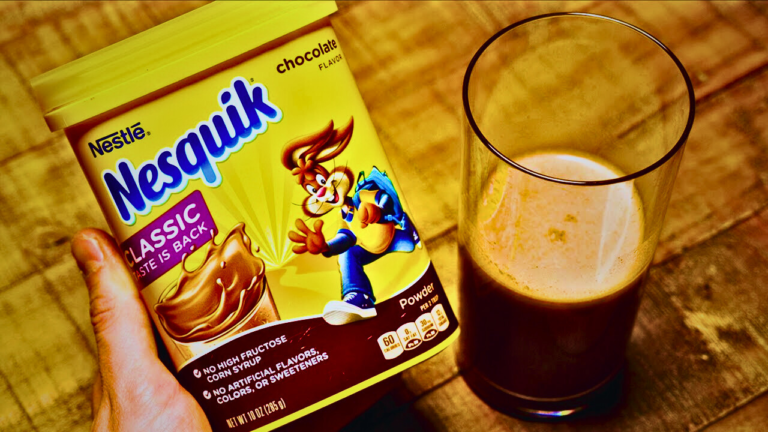Can Hot Chocolate Keep You Awake?
There’s nothing quite like snuggling up on a cold day with a steaming mug of hot chocolate. The enticing aroma, the smooth texture, and the deliciously sweet taste—it’s pure comfort in a cup. But as the evening creeps in and bedtime draws closer, you might find yourself wondering: Can hot chocolate actually keep you awake? In this comprehensive guide, we’ll explore the effects of hot chocolate on sleep, discuss its key ingredients, and dive into current scientific studies to provide you with a clear answer to this hot, chocolaty question.
Note: As with anything related to health or diet, the impact of hot chocolate on sleep might vary from person to person, depending on individual tolerance to certain ingredients and overall lifestyle factors.
Before we delve into the heart of the matter, let’s understand how your favorite beverage, hot chocolate, is typically made.
- Cocoa: The main ingredient in hot chocolate, cocoa does contain a small amount of caffeine, which could potentially affect your sleep.
- Sugar: Often added for sweetness, sugar can influence your energy levels and sleep patterns.
- Milk: Many hot chocolate recipes include milk, which contains tryptophan, an amino acid known to aid sleep.
These are just the basics. The type of hot chocolate—be it a homemade concoction, an instant mix, or a cafè rendition—might contain additional ingredients. Furthermore, the concentration of these ingredients can also vary considerably. So, let’s delve in and explore in detail how hot chocolate can potentially affect your sleep.
Read also: What Temp Should Hot Chocolate Be?
What ingredients in hot chocolate could potentially affect sleep?
From a dreamy froth to the luscious, creamy liquid, there is something truly comforting about a cup of hot chocolate before bedtime. It’s warm, soothing, and simply irresistible. But here’s the thing: Can this sweet delight influence your sleep? Let’s delve into the list of ingredients typically found in hot chocolate to get a clearer picture.
Primarily, hot chocolate is made from cocoa powder, sugar, and milk or water. Now, each of these components can have a distinct effect on your slumber, especially if consumed too close to bedtime. Why is that? Let’s find out.
- Cocoa: Cocoa contains theobromine, a natural stimulant similar to caffeine. Despite being less potent, theobromine can still cause restlessness and increased heart rate in some individuals, impeding your transition to dreamland.
- Sugar: Irrespective of your love for sweets, sugar is an energy booster. Ingesting sugar-filled hot chocolate might give you a surge of energy that can keep you awake longer than you’d like. We’ll expand more on this in the upcoming section.
- Milk: Quite the contrary to the above, milk is often associated with promoting sleep due to the presence of tryptophan, an amino acid that serves as a precursor for serotonin and melatonin, two key neurotransmitters involved in sleep regulation.
It’s worthwhile to note that these effects may be more or less pronounced based on individual sensitivity and the specific composition of your hot chocolate. Something as simple as the choice between semi-skimmed or whole milk, or the use of sugar substitutes, could sway how your body reacts to the beverage. Remember to factor in these nuances when pondering over hot chocolate and its potential sleep influence.
How does sugar intake influence sleep patterns?
Ever noticed how you might feel a little jittery or even wide awake after savoring that delicious cup of hot chocolate? That’s sugar at play, my friend! Scientists have found a link between sugar consumption and sleep disruption. Now, that doesn’t mean you have to turn away from your beloved cocoa! Let’s dive in and understand why sugar can cause a little hiccup in our nighttime rest.
Sugar – it’s sweet, it’s satisfying, and it can be found in an abundance in hot chocolate! And while it may taste wonderful, it can actually have a pretty significant impact on our sleep quality. When we consume sugar, especially later in the evening, our body has to work to process it. This causes a surge in our blood sugar levels and, if consumed in large amounts, this sugar rush can lead to increased energy levels, making it difficult for us to fall asleep.
It’s not all doom and gloom, though. There are ways we can still enjoy our hot chocolate, without causing sleep disruption. One possible solution? Try using less sugar in your hot chocolate, or better yet, opt for a sugar free variant. A smaller quantity of sugar during the day, specifically in the evening, can lead to a more tranquil night.
Additionally, pairing your hot chocolate with a protein-rich snack, like a handful of nuts or a piece of cheese, can help mitigate the blood sugar spike. Protein slows down the absorption of sugar into the bloodstream, preventing that sudden sugar high. So, while a steamy cup of hot chocolate might seem like the perfect bedtime treat, it might be wise to pair it with something a little less sweet for a good night’s rest.
But, even after all this, if you find yourself tossing and turning at night after drinking hot chocolate, it might be worth reconsidering it as your nighttime beverage. There’s a whole world of decaffeinated and less sugary drinks out there to explore. As always, balance is key when it comes to our diets. But don’t worry, your sleep health is worth it.
Read also: How To Remove Hot Chocolate Stain?
What scientific studies have been conducted on the effects of hot chocolate on sleep?
You may be curious about the scientific backing for all this chatter about hot chocolate and sleep. Well, not to worry – numerous studies have investigated the effect of certain elements of hot chocolate on sleep patterns. Let’s take a brief journey into the realm of science to see what experts have unearthed on this subject.
One study conducted by the University of Zurich found that people who consumed more sugar and less fiber before bedtime tended to have more restless and disrupted sleep. Even though the investigation wasn’t specifically targeted at hot chocolate, this finding significantly influences our understanding of how the sugary beverage could impact sleep.
Note: This does not mean that a single cup of hot chocolate before bed will immediately lead to restless sleep. The effects of sugar on sleep patterns are cumulative and more noticeable when there is a consistent pattern of high sugar intake.
Specific to hot chocolate, a study published in the American Journal of Clinical Nutrition highlighted the effects of cocoa, a primary ingredient in hot chocolate, on sleep. They discovered that consumption of high-flavanol cocoa resulted in increased brain oxygenation and superior cognitive performance, especially in individuals with cognitive impairment. While this research doesn’t directly shed light on hot chocolate’s impact on sleep, it implies that if consumed earlier in the day, high in flavanols hot chocolate could enhance cognitive function.
On the caffeine front, a study in the Journal of Clinical Sleep Medicine explored the effect of caffeine on sleep. They concluded that caffeine consumption 6 hours before bedtime can disrupt sleep, suggesting that those hot chocolate enthusiasts should ideally enjoy their favorite beverage well before evening to avoid potential sleep disturbances.
In summary, while there are no explicit studies on hot chocolate and sleep, several research pieces on its ingredients (sugar, cocoa, caffeine) give us a comprehensive understanding of its potential impact on our slumber.
Does the temperature of a beverage impact sleep quality?
Indeed, the temperature of your beverages can affect your sleep to some extent. We often find comfort in a warm mug of hot chocolate, especially on a chilling night, believing it helps us sleep better. Yet, it’s not just about the drink being warm—there’s more to it than you might think.
Why do we believe that a warm drink aids sleep?
There is a psychological aspect to it. We often associate having a warm drink such as hot chocolate, right before bed with a state of relaxation. It’s a common bedtime routine for many, which forms a psychological bond—believing that our body will start prepping for sleep as we indulge in our favorite heated brew. This is part of what we call good sleep hygiene.
But beyond that, what role does the temperature indeed play?
The Thermoregulation Theory:
Our body’s core temperature naturally dips during the night as part of the circadian rhythm—the internal clock that regulates our 24-hour sleep-wake cycle. This drop in temperature signals the brain that it’s time to sleep. So, when you have warm, hot chocolate, it raises your body’s peripheral temperature—the temperature of your skin, hands, and feet. This change in temperature could potentially improve your body’s ability to fall asleep more easily.
However, maintain a balance here; too hot a drink could lead to thermal discomfort leading to restlessness as the body tries to cool down.
The flip side:
Despite the above, it’s important not to ignore the flip side of the coin. The consequences of bedtime drinks are often dictated more by what you drink rather than how warm it is. Remember the key elements we discussed earlier? The caffeine and sugar content in your hot chocolate could overstimulate your nervous system and energy levels making it harder to fall asleep. So, though temperature indirectly plays a role, the main ingredients of your drink carry more significant effects on your sleep.
With that said, an indulgence in a warm cup of hot chocolate now and then, especially if it’s low on sugar and caffeine, and forms part of your nighttime routine might just do the trick for a good night’s rest!
How does the caffeine content in hot chocolate compare to other beverages like coffee or tea?
Indeed, hot chocolate does contain caffeine but it’s crucial to note that the amount is significantly lower than other popular beverages such as coffee or tea. In reality, hot chocolate isn’t usually classified as a ‘caffeinated beverage’ due to its minimal caffeine content. But, there is enough caffeine present to potentially impact your sleep, especially if you’re sensitive to this stimulant.
Let’s compare the caffeine content to shed some light on different beverages:
| Beverage | Average Caffeine Content |
|---|---|
| Hot chocolate (8 oz) | 5 mg |
| Green tea (8 oz) | 25 mg |
| Black tea (8 oz) | 47 mg |
| Coffee (8 oz) | 95 mg |
As shown in the table, the average 8 oz cup of hot chocolate contains about five milligrams of caffeine. Comparatively, green tea contains around 25 milligrams, black tea has about 47 milligrams, and an 8 oz cup of coffee holds a whopping 95 milligrams. That puts hot chocolate at the lower end of the spectrum when it comes to caffeine content.
Note: The caffeine content can vary considerably based on factors like the brand of the beverage and the preparation method. Be sure to check the package label if you’re concerned about your caffeine consumption.
Also, keep in mind that timing is key when it comes to caffeine consumption. Drinking any caffeine-containing beverage late in the evening can affect your sleep, as caffeine has a half-life of 3 to 5 hours. Which means it can take this long for the amount of caffeine in your body to be reduced by half. So, if you’re concerned about the potential impact on your sleep, aim to consume hot chocolate earlier in the day.
Conclusion
Wrapping up what we’ve discussed, it appears that hot chocolate’s influence on sleep is multifaceted. The caffeine, sugar, and temperature of the beverage all play significant roles in potentially altering our rest patterns. However, it’s crucial to remember that everyone is unique and might reacts differently even to the same dosage of these elements.
Let’s break down the key points:
- Caffeine Content: Hot chocolate does contain caffeine, but it’s significantly less when compared to coffee or tea. It’s unlikely to keep you awake unless you’re particularly sensitive to caffeine or consume it in large amounts.
- Sugar Impact: High sugar intake, particularly before bed, can disrupt sleep. It’s recommended to opt for low-sugar or sugar-free versions if you’re drinking hot chocolate before bedtime.
- Temperature Factor: The warmth of hot chocolate could potentially aid in relaxation, promoting sleep.
- The Diverse Reactions: Individual responses can vary, as everyone has unique tolerances and sensitivities to caffeine and sugar. Your own reaction might differ from the general norm.
So, can hot chocolate keep you awake? Yes, it can, under certain circumstances. However, when consumed in moderation and with smart modifications, like opting for a low-sugar version, it is less likely to interfere with your sleep.
In the end, it’s all about finding your own balance and understanding your body’s response system. So, go ahead and enjoy your cup of hot chocolate—just remember to keep moderation in mind.
FAQs
Is there caffeine in hot chocolate?
Yes, hot chocolate does contain caffeine, albeit in much lower quantities compared to other beverages like coffee or tea. The caffeine content can range from 5–15 mg per 8-ounce cup, though it may vary depending on the brand and preparation method.
Can the sugar in hot chocolate impact my sleep?
Indeed, sugar can influence your sleep patterns. Consuming sugar before bed can lead to a spike and crash in your blood sugar level that might prompt middle-of-the-night wake-ups.
Do any particular hot chocolate ingredients promote sleep?
Actually, one could argue the milk might offer some sleep-promoting benefits. It contains the amino acid tryptophan, which helps produce melatonin, a hormone that regulates the sleep-wake cycle.
Could the warmth of hot chocolate aid sleep?
Possibly. Warm beverages can have a soothing effect and may help some individuals relax before bedtime. However, the effect is largely psychological and may not work for everyone.
How does hot chocolate compare to coffee?
When comparing hot chocolate to coffee, coffee contains significantly more caffeine. An 8-ounce cup of coffee typically contains between 95 – 200 mg of caffeine. Also, coffee doesn’t have inherent sugar, unless added intentionally.
How does hot chocolate compare to tea?
Black tea usually has less caffeine than coffee but more than hot chocolate, around 47 mg per 8-ounce cup. However, herbal teas often have no caffeine at all.
What about dark, hot chocolate?
Dark hot chocolate, made with darker, more pure cocoa typically has slightly more caffeine per serving than regular hot chocolate due to the higher cocoa content.
Does drinking hot chocolate at night affect sleep quality?
It could be for some, especially for those sensitive to caffeine or if you are indulging in a large or sugar-ridden cup just before bedtime. Everyone’s sensitivity to these substances varies, so it may depend on individual reactions.
Could hot chocolate ever be considered a sleep aid?
While a warm, soothing mug can help you feel relaxed, hot chocolate as a sleep aid isn’t broadly recommended due to its sugar and caffeine content. If you are struggling with your sleep, it is best to consult with a healthcare professional.
Can children have hot chocolate before bed?
Children are generally more sensitive to caffeine and could potentially have their sleep affected more by hot chocolate. It’s best to stick to smaller servings and avoid serving them too close to bedtime.

Welcome to the delightful world of “Hot Chocolate Brew,” where the art of crafting and savoring hot chocolate takes center stage. I am Smith Karen, your guide on this indulgent journey through the rich and velvety universe of hot chocolate. As a passionate enthusiast of this comforting elixir, I am thrilled to share my insights, recipes, and experiences with fellow connoisseurs and those eager to explore the diverse realm of hot chocolate.
At “Hot Chocolate Brew,” we believe that a steaming cup of cocoa has the power to warm not just your body but also your soul. Whether you’re a seasoned hot chocolate aficionado or a newcomer to the world of cocoa delights, our aim is to provide you with a delectable blend of inspiration, knowledge, and mouthwatering recipes.
Join me in uncovering the secrets behind the perfect cup of hot chocolate, from selecting the finest ingredients to experimenting with unique flavor combinations. From classic recipes that evoke nostalgic warmth to innovative twists that will surprise your taste buds, “Hot Chocolate Brew” is your go-to resource for all things cocoa-related.
Prepare to embark on a journey of indulgence, as we explore the nuances of this timeless beverage together. Get ready to elevate your hot chocolate experience and make every sip a moment of pure, chocolaty bliss. Cheers to the joyous world of “Hot Chocolate Brew”!
